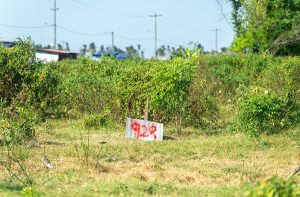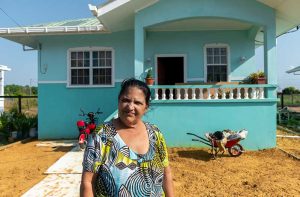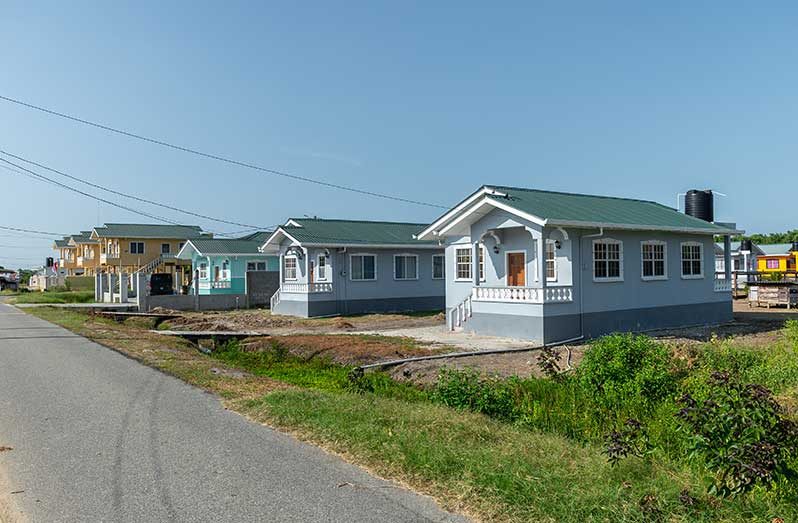THE Ministry of Housing and Water is making significant strides in the establishment of a housing development in Experiment Village, West Coast Berbice (WCB), Region Five. This initiative is part of the government’s broader effort to provide affordable housing and improve living standards for citizens.
In 2023, the ministry allocated several house lots in the area and constructed 20 low-income homes. During a recent visit to the village, the story of 61-year-old Hansrane Salick highlighted the impact of the housing initiative. Salick, who now resides in one of the newly constructed homes with her two

daughters, aged 24 and 18, shared that prior to moving into their new home in May, they had been living in a rented property. While her home still requires some improvements, she expressed a sense of pride in owning her own house, stating that it has brought stability and security to her family.
Salick’s story is just one example of the transformative power of the housing programme, which is central to the ministry’s goal of distributing 50,000 house lots by the end of next year. The ministry’s housing development programme is designed to implement national housing and settlement policies through a well-planned, coordinated framework aimed at developing sustainable, affordable and modern communities.
Over the past four years, the Ministry of Housing and Water has launched several initiatives to meet these goals. These include the Single Window System, an online permit application system for land use and development; the Home Construction Assistance programme; and the Home Subsidy Programme. As of this year, the ministry has distributed over 30,000 land titles and transports, allocated more than 30,468 residential and commercial lots, and constructed over 1,121 homes for citizens across the country.
One of the ministry’s latest projects, the Homestead Programme, was recently launched on the Soesdyke-Linden Highway. This ambitious initiative will see the construction of 500 houses for single mothers over the next six months. Each house will come equipped with agricultural facilities and solar power, creating a self-sustaining ecosystem for residents. This innovative approach is aimed not only at addressing immediate housing needs, but also at providing long-term financial stability and self-sufficiency for single mothers.

During the International Building Expo in August, President, Dr Irfaan Ali spoke about the potential of this housing model, which integrates agriculture, solar energy, and economic activities within each household plot. “We are creating an economic model that offers single mothers the opportunity to earn and repay their loans while improving their living conditions,” Dr Ali said. The inclusion of agricultural activities and solar energy is designed to reduce energy costs while providing residents with an opportunity to generate incomes.
This holistic approach to housing and community development reflects the government’s commitment to improving the lives of Guyanese citizens.
By combining major sectors such as housing, agriculture, and renewable energy, the ministry is working to create a model of self-sufficiency that could be replicated across the country, ultimately contributing to the development of vibrant and economically sustainable communities.



.jpg)








